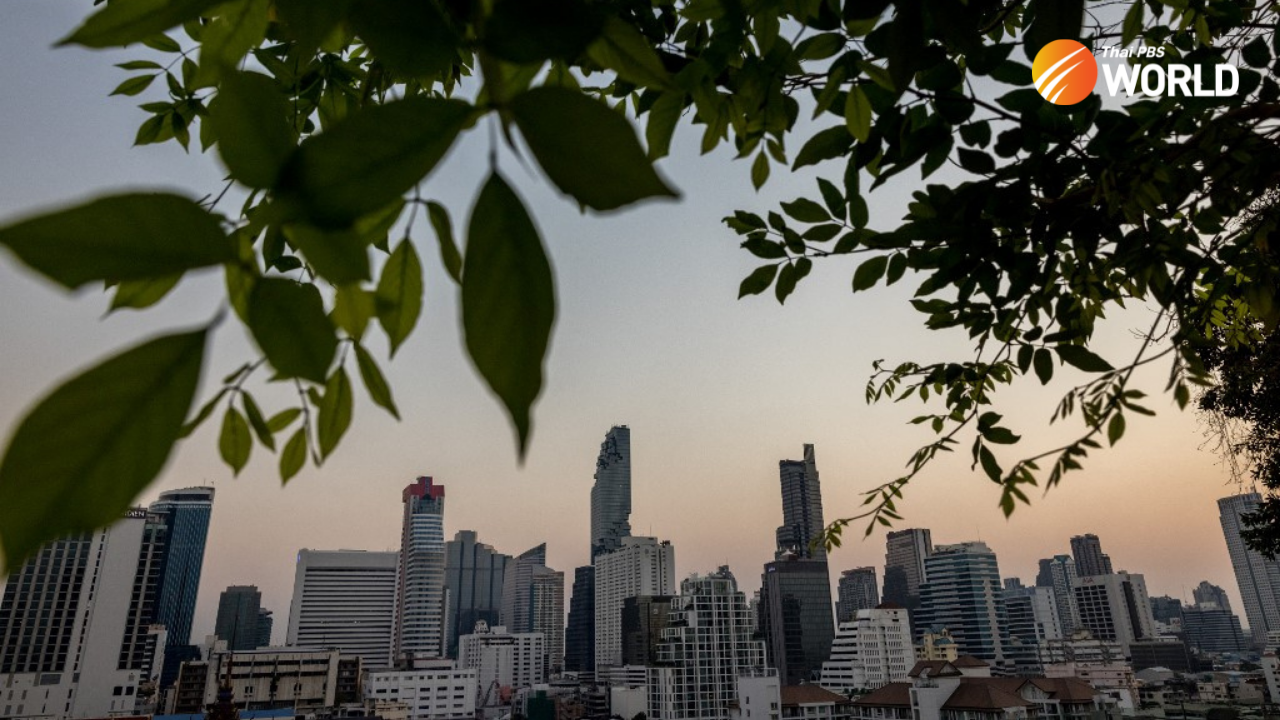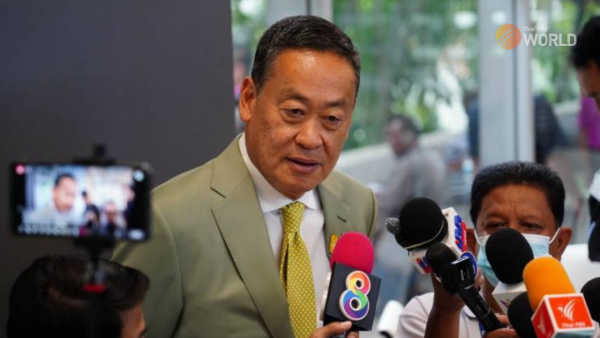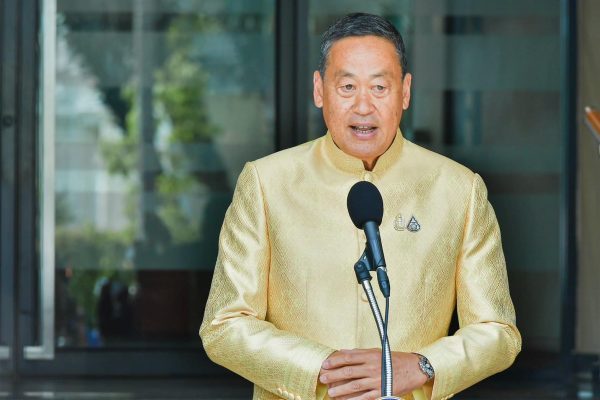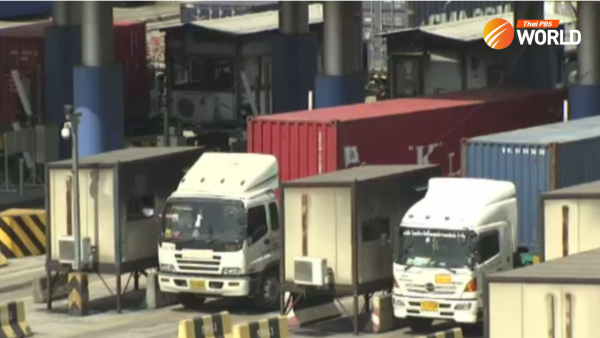Amid sluggish economy, budget poses huge challenge to government

Unfavorable economic conditions are likely to pose tough challenges for current and future governments in managing the annual budget.
The Prayut Chan-o-cha government plans to spend Bt3.185 trillion in fiscal 2023 (October 2022 to September 2023), but the bill is yet to be presented to Parliament.
The planned 2.74 percent increase in outlay from the current fiscal year reflects constraints on the government’s finances.
Revenue projection is Bt2.49 trillion, resulting in a budget deficit of Bt695 billion, equivalent to 3.89 percent of gross domestic product.
Pressure on public finance
The government has been facing pressure from the revenue and expenditure sides.
Given the fragile recovery from the COVID-19 pandemic over the past two years, large public spending is still needed to maintain the recovery momentum.
Russia’s invasion of Ukraine has led to sharp spikes in the prices of oil and natural gas, and the impact on Thai businesses and consumers is severe as Thailand is a net-importer of energy.
Businesses and consumers have complained about the rising prices of petrol, electricity, and cooking gas and they are demanding additional energy subsidies.
The World Bank recently warned developing countries in the Asia-Pacific region that countries dependent on energy imports and having high public debt would find themselves in a very difficult situation to navigate economic policy amid risks stemming from COVID-19 and geopolitical tensions.
“Thailand would have limited fiscal space to boost the economy,” said Anusorn Tamajai, former dean of economics at Rangsit University.
Thailand has run fiscal deficits for several years since 2004, leading to a pile-up of public debt, he said.
As of February 28, Thailand’s public debt was Bt9.8 trillion, equivalent to 60.17 percent of the Bt16.3-trillion GDP, according to the Public Debt Management Office.
Previously, Thai governments had intended to keep public debt below 60 percent of GDP to ensure fiscal sustainability. But the combination of slow economic growth and the fallout of COVID-19 recently forced the government to incur higher public debt.
Thailand’s banks try to find their feet in fast-changing world
Stuck with budget deficit
Since the slowdown in economic growth would continue amid the high uncertainty for the global economy, the Thai government’s tax revenue is unlikely to rise. So the government has to continue to borrow for the next few years.
According to the Finance Ministry’s medium-term fiscal plan, the ministry has projected government annual expenditure at Bt3.185 trillion, Bt3.270 trillion, Bt3.363 trillion, and Bt3.456 trillion from fiscal years 2023-26.
The ministry projects government revenue of Bt2.49 trillion, Bt2.56 trillion, Bt2.64 trillion, and Bt2.72 trillion respectively during those years.
The revenue shortfall will result in budget deficits of 3.9 percent, 3.8 percent, 3.7 percent, and 3.6 percent of GDP respectively, gradually narrowing the fiscal gap but not yet targeting a balanced budget or surplus.
The government has assigned state-owned banks, or specialized financial institutions to help both individuals and corporations struggling to survive the impact of COVID-19 lockdown measures locally and internationally.
For example, the government has asked the Thai Credit Guarantee Corporation (TCG) to provide credit guarantee services to small and medium-sized enterprises in order to help them secure loans from commercial banks. Should those loans turn into bad debts, then the TCG will bear a large share of the damage and at the end, the government has to subsidize its operation.
Anusorn projected that this guarantee scheme could cause public debt to balloon by another Bt10 billion to Bt15 billion.
Higher cost of funding
Given the rising interest trend globally as countries have raised or plan to raise interest rates to fight high inflation, the Thai government will face a higher cost of borrowing money to finance its budget deficit and debt services. Investors will have to be offered a higher interest rate on government bonds.
Anusorn warned that if public debt rises to 70 percent of GDP, Thailand’s sovereign credit rating may be downgraded by international credit rating agencies in the next few years. This would further increase the cost of borrowing as lower ratings would mean higher risks to hold Thai government bonds hence investors would likely demand a higher coupon rate on government bonds.
Because of the low foreign debt currently, Thailand has room to expand fiscal space to some extent.
As of February 28, foreign debt represented 1.78 percent of total public debt. Combined with ample local liquidity, the government may still be able to run budget deficits for the next few years.
Amornthep Chawla, chief economist at CIMB Thai Bank, believes the government still has room to spend more by running fiscal deficits.
However, MR Pridiyathorn Devakula, former central bank governor and former deputy prime minister, expressed concern over fiscal space. He blamed current and previous governments, saying they had not managed fiscal policy prudently.
War in Ukraine sends construction material prices in Thailand soaring
Targeting a balanced budget
The Finance Ministry plans to achieve a balanced budget in the long run by carefully managing government revenue, spending, and debt payment.
The ministry still wants to keep annual spending at appropriate levels to allow the government to implement desirable policies and to handle any future risks.
Next is to manage public debt, ensuring it does not get out of hand. To ensure debt sustainability requires a low cost of debt refinancing and appropriate debt repayment in terms of amount and time frame that will not impose too high a burden on the fiscal side in the long run.
The Finance Ministry plans to increase the efficiency of tax collection and also reform the tax structure. Critics have for long expressed disappointment with tax reform.
Some have suggested that the government levy more taxes on the country’s richest, such as land and building tax as well as inheritance tax. Others suggest that the government increase the value-added tax (VAT) rate to 8 or 10 percent from the current 7 percent. But tax hikes are unpopular and governments have been reluctant to take that path.
On the spending side, the ministry has advised governments to reprioritize expenditure by cutting or delaying spending items that are not immediately necessary so that allocations can be made for high-priority projects that directly benefit the people. Critics have long called for budget cuts on military spending and funds allocated to support Palace agencies in order to increase spending on social welfare instead.
Under the spending plan for fiscal 2023, the government plans to cut the Defence Ministry’s budget to Bt197.3 billion, down by Bt4.4 billion from the current fiscal year. Opposition politicians in Parliament are expected to demand a deeper cut while continuing to call for a reform of the military.
By Thai PBS World’s Business Desk






